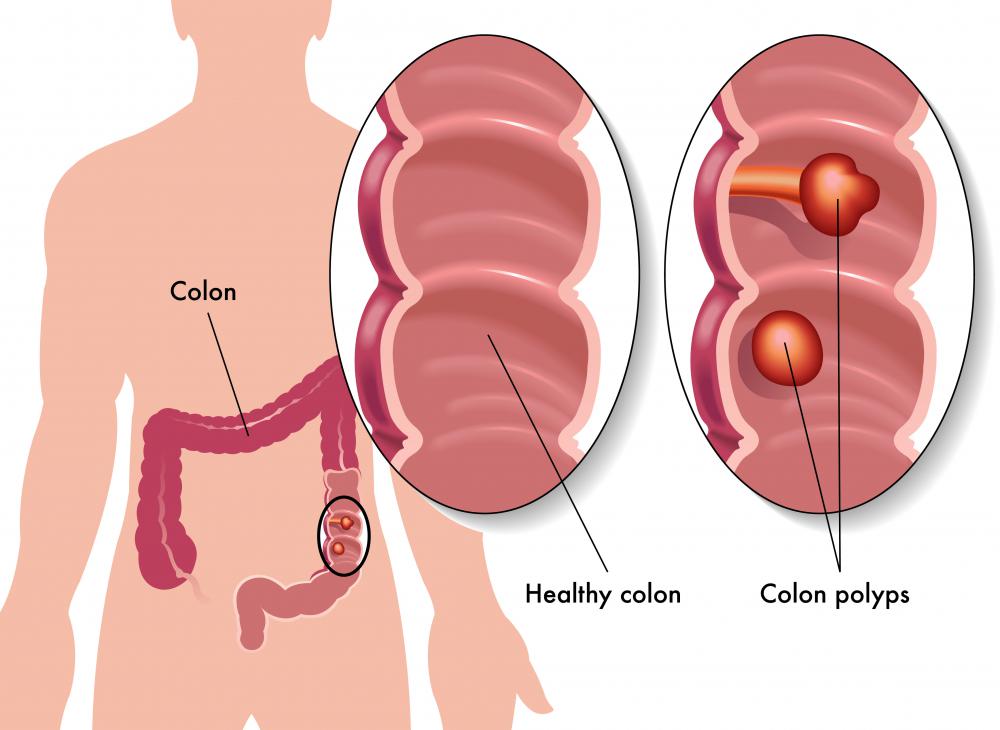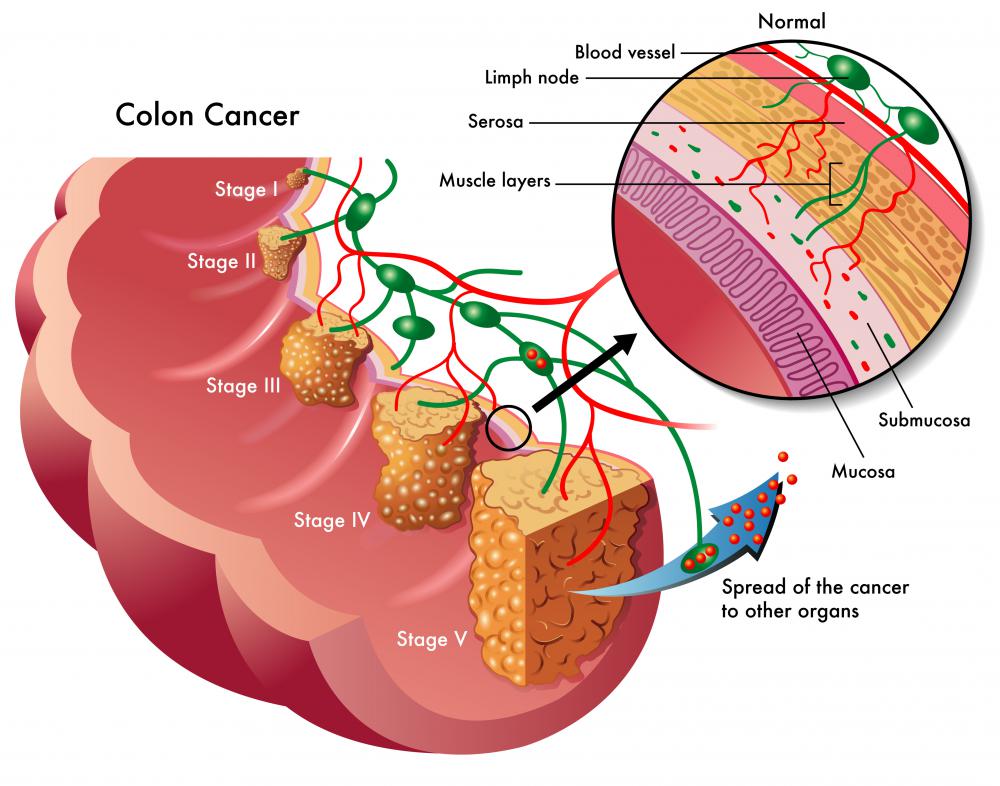At TheHealthBoard, we're committed to delivering accurate, trustworthy information. Our expert-authored content is rigorously fact-checked and sourced from credible authorities. Discover how we uphold the highest standards in providing you with reliable knowledge.
What Is a Rectal Polyp?
A rectal polyp is an abnormal growth that protrudes through the lining of the rectum at the base of the colon, or large intestine. Colorectal polyps are on of the most common conditions of the colorectal region. They are estimated to affecting as much as 20 percent of all adults.
There are three main types of polyps: hyperplastic, adenomatous and inflammatory. A hyperplastic rectal polyp most often occurs in the rectum and the descending colon. It is typically smaller than one-fourth of an inch (6.35 mm) and usually is not cancerous.

Adenomatous polyps are further broken down into three different types: villous, tubular and tubulovillous. A villous adenomas rectal polyp has the greatest risk of becoming cancerous. Inflammatory polyps are caused by chronic swelling in the large intestine and are rarely cause for concern. Polyps larger than 0.4 inches (1 cm) in diameter have a greater chance of becoming cancerous than smaller polyps do, especially if the patient has a family history of colon cancer. The risk also increases with age.

Typically, a rectal polyp causes no obvious symptoms. In some cases, however, rectal bleeding, bloody stools, anemia and abdominal pain can occur. In rare cases, a routine physical exam may unmask the presence of a rectal polyp, but a colonoscopy usually is required to locate the polyp and determine the type. During this diagnostic procedure, the physician inserts a flexible tube with a small camera attached at the end into the rectum and threads it up through the colon. A sedative and pain medication typically are administered prior to the procedure.

There is no absolute way to determine whether a rectal polyp has the potential to become cancerous, so most physicians prefer to remove them right away. Most rectal polyps are removed during the colonoscopy, either by looping a wire instrument around them and snaring them or by simply touching them with an electrical current. An excessively large or poorly positioned rectal polyp might require a more invasive surgical removal.

After it has been removed, it is rare for a specific rectal polyp to return. If the factors leading up to the formation of the polyp remains an issue, however, more polyps might form in the future. Risk factors include being overweight, long-term inflammatory colon diseases and a sedentary life style.
Smokers have a 20 percent higher chance of developing a rectal polyp than non-smokers. Excessive consumption of alcohol, especially beer, also increases the risk. Maintaining a healthy weight and eating a diet rich in vegetables and fiber might help decrease the risk of developing rectal polyps.
AS FEATURED ON:
AS FEATURED ON:


















Discuss this Article
Post your comments